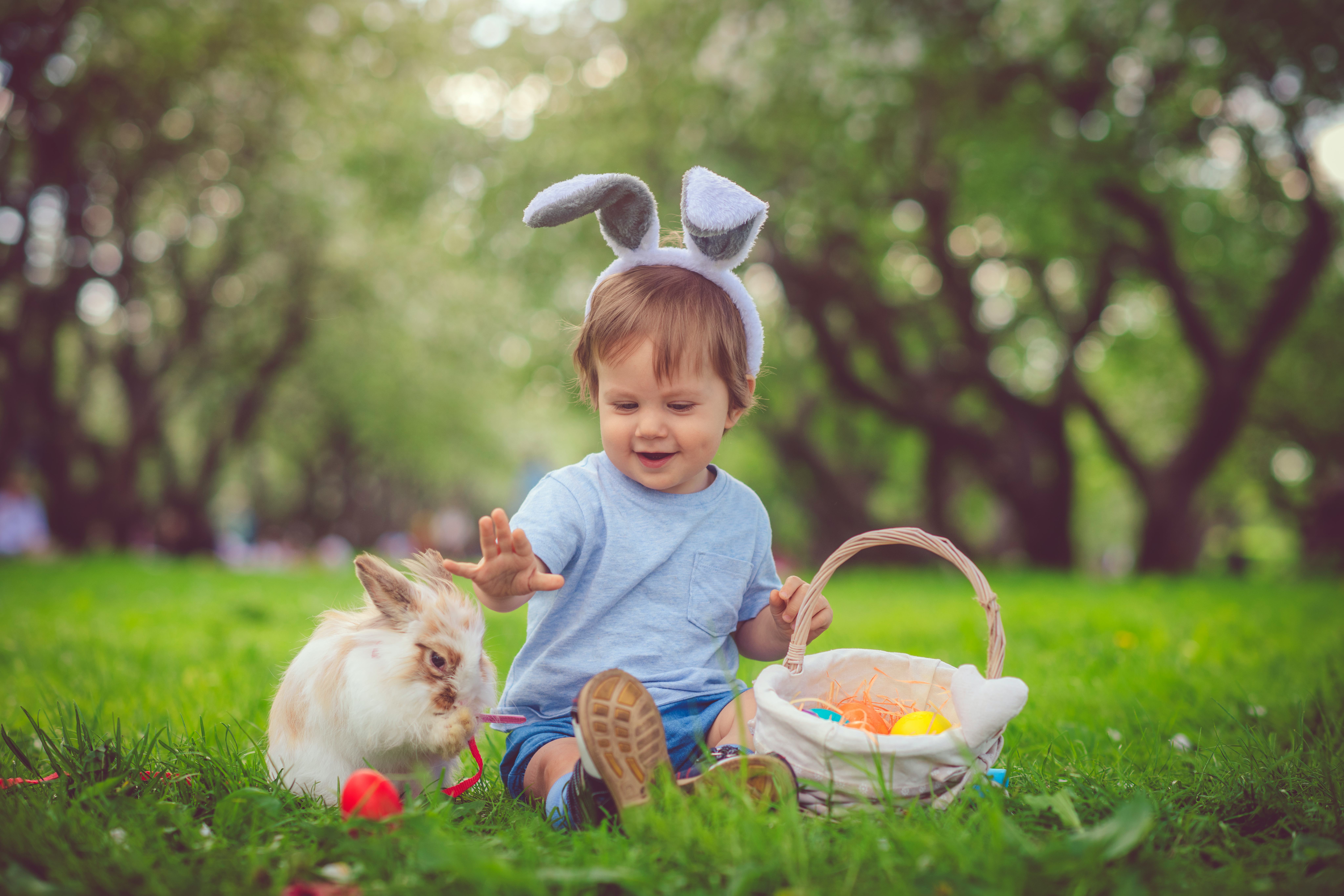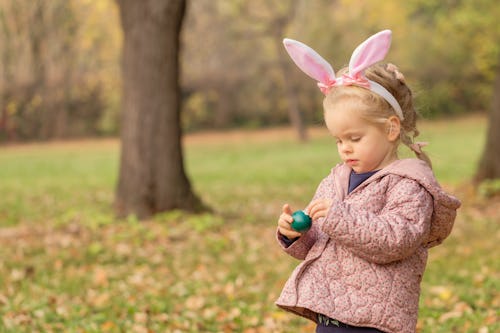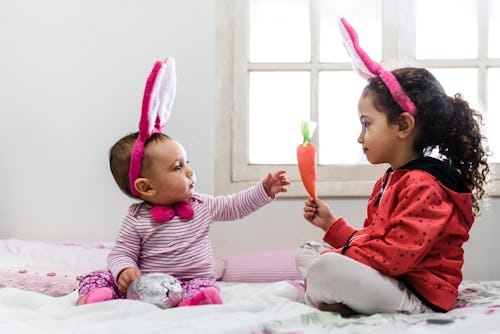
As a parent, you always try to tell your child the truth. But there are some childhood myths that are too magical to pass up, like Santa Claus or even the Tooth Fairy… until your kid spies you stuffing copious amounts of Easter candy and bags of treats into the trunk of your car. So if it’s time to come clean, here’s how to tell your kids the Easter Bunny doesn’t exist.
If you’re not exactly hopping (ha) to tell your child that the tale of the Easter Bunny isn’t true, we can’t say that we blame you. Like all of the tales we tell our kids that aren’t quite legit (we’re looking at you, Elf on the Shelf), the Easter Bunny represents a specific space and time in your child’s life, and one that is not going to come back again. So it’s no wonder that you’re spending the night before Easter crafting the cutest basket full of candy and small toys, hoping that you get just one more year of childhood innocence and blind belief in the Easter Bunny. “Kids are phenomenally imaginative, naturally curious, and incredibly perceptive, and these three traits are what at first draw kids to the idea of the Easter Bunny,” Christina Furnival LPCC, a licensed psychotherapist, tells Romper. “And ultimately, it’s what sparks questions about the Easter Bunny's true identity.”
So if your kiddo is starting to get a little suspicious about how a bunny can bring baskets full of pastel-colored treats to your home (and kids everywhere), these are some ways to have the conversation.
Ask Questions

Just because your child is curious about the Easter Bunny doesn’t necessarily mean that they want to know the truth. “When a child is asking questions, you the parent will best know whether your child wants real answers or wants you to hold a space for their questions,” advises Furnival. “The best response to ‘Is the Easter Bunny real?’ may be, ‘What do you think?’ and then take the child's lead.”
Tell A Tail (Er, Tale)
Just because your child is curious about the Easter Bunny doesn’t necessarily mean that they want to know the truth. “When a child is asking questions, you the parent will best know whether your child wants real answers or wants you to hold a space for their questions,” advises Furnival. “The best response to ‘Is the Easter Bunny real?’ may be, ‘What do you think?’ and then take the child's lead.”
Be Honest
One day, your kid comes home from school with heartbreaking news: one of their friends told them that the Easter Bunny doesn’t exist. While your immediate reaction might be to console (and possibly to want to slug the other kid), take a step back for a second. If your child shows some doubt, or is getting to be “that age” where the Easter Bunny should hop off into the sunset, you might want to have an honest conversation about it.
“A simple response that may sit well with your child is: ‘Believing in the Easter Bunny has brought you joy and excitement over the years. You're right that the Easter Bunny was really me, and I loved giving that experience to you. How do you feel about that?’” says Furnival. “Often when a child is ready to know the truth, they are also capable of handling it, and you might be surprised that it goes smoothly!”
Of course, your kiddo might get upset, and if that happens, you should allow them to have the space to honor their feelings. Dr. Mary Gay, PsyD, LPC, CPCS, a licensed professional counselor, explains. “Be honest about your reasoning for lying to them and validate any negative feelings they have towards being lied to by apologizing,” says Dr. Gay. “Listen to how your child feels about the new information and help them navigate through those feelings."
Spare The Younger Siblings

Now, explaining the Easter Bunny to your older child isn’t always the issue. The problem can come when a younger sibling still believes in a benevolent bunny that brings tantalizing treats on Easter morning. But if you’re worried about your child spilling the (jelly) beans, don’t be. “If you want to keep the spirit of the Easter Bunny alive for your younger children, you could say something like, ‘Let's continue the tradition with your younger sibling(s) and they can learn the truth in their own time!’” says Furnival. “If the older child needs a little convincing you could also make it a rule that in order to receive Easter Bunny goodies, you either have to believe or pretend you do!”
Explain The Origins Of The Easter Bunny Myth & The Importance Of Easter
Sure, chocolate bunnies and sticky sweets might make Easter colorful, but there’s a whole other meaning to the holiday. So even though it might be disappointing to discover that it was actually you who has been in charge of the Easter egg hunt, take this opportunity to explain to your kiddo the real reason that your family celebrates. You can even explain how the bunny came to be associated with Easter — some think it might stem from pagan traditions, per Time.
Although you might want the magic to last just a little longer, at some point, you’ll have to tell your child the truth when they wonder if the Easter Bunny is real. Just make sure they understand that even though there might not be an actual Easter Bunny, that doesn’t negate all the fun and festivities your family has experienced as a result of the holiday. And for that, your child’s Easter basket will overflow with love — and lots and lots of chocolate.
Experts:
Christina Furnival LPCC, a licensed psychotherapist
Dr. Mary Gay, PsyD, LPC, CPCS, a licensed professional counselor

0 comments:
Post a Comment